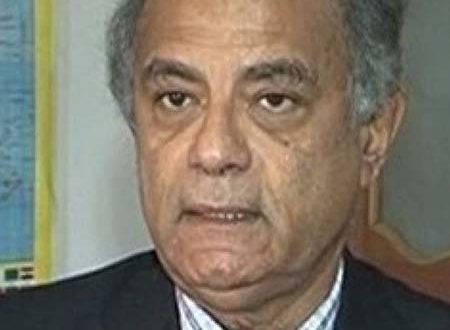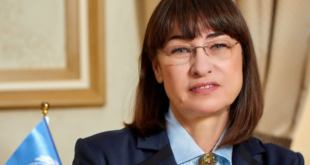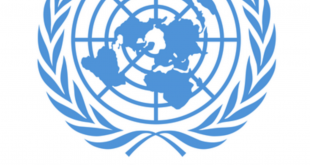Slogans about democracy are not enough in themselves. What Arab republics need are courageous modernisers, able to lead the people towards good governance.
Hussein Haridy
It has been customary and fashionable in the West to speak about the “Arab Spring” in describing popular uprisings that erupted eight years ago in a majority of Arab countries that adopted republican systems of government in the post-World War II era. No one knows for sure who coined this dubious term, but it proved to be a rallying cry during the height of these mass popular movements against leaders who maintained themselves in power for decades. The term mobilised the youth and all those political forces and movements that wanted their share in power, if not monopolising it, and a share in the national wealth.
It would be difficult today to speak about such a “Spring” after the political and social destabilisation that it brought about. Those who still speak about an “Arab Spring” — assuming their good intentions — believed that the confrontation that these uprisings caused was between “revolutionaries” who wanted better governance and more democratic regimes and ruling elites whose only interest was to maintain power. From Tunisia, where it all had begun, to Egypt, Libya, Syria and Yemen, the Arab Spring phenomenon was reduced to a simplistic duality between those forces that wanted to maintain and perpetuate the status quo and those who fought to overthrow it.
Mind you that the latter had no idea of how to govern, nor had any political experience. And all these movements were lacking in two requisites for successful revolutionary movements: namely, leaders, programmes and vision. Needless to say, in all Arab republics that went through the disruption and destabilisation of the Arab Spring, the only political force that had leaders and vision happened to be the most reactionary political forces on the scene; that is, the forces of political Islam including, of course, the Muslim Brotherhood who, by definition and historical precedent, never believed in democratic systems of governance. This does not mean that they don’t talk about it publicly. On the contrary, they were the ones, particularly in the case of Egypt, who were the loudest in speaking about democracy. Five years ago, and at the height of the political instability that was prevailing in Egypt, I was invited to a roundtable discussion about the future of democratic governance in Egypt. One of the main speakers was a well-known member of the Muslim Brotherhood who liked to be introduced as a “former member” of the Muslim Brotherhood and who returned to Egypt after January 2011 from self-imposed exile in the United Kingdom — a choice should not be surprising.
Given the fact that I was not oblivious to his background, I was not totally surprised when he stressed that democracy has nothing to do with Islam. What was surprising was his self-assurance in expressing one of the basic political and ideological tenets of the Muslim Brotherhood, which is shared by all political forces, and parties that belong to political Islam. As far as this point is concerned, there is no difference between the Muslim Brothers, the Taliban and the terrorist Islamic State (IS) group. All these forces are reactionary political forces that are fixated on an imaginary “golden past” that they promise to bring back to life once in power.
If their followers were, for one reason or another, part of the uprisings of the “Arab Spring,” this should not mean that they are an indispensable element in fashioning new systems of governance that would scrupulously adhere to the principles of good governance as defined in United Nations literature on the matter. The fact is that these reactionary forces have been the major stumbling block on the road of transforming the societies of the Arab republics into modern ones, a basic condition to establish functioning and sustainable democratic regimes.
The point I want to stress is that what Arab republics, without exception, badly need are modernisers that have the vision and the leadership legitimacy and capacities to transform their present traditional societies into modern ones. The most important criterion would be that all citizens, regardless of religious and sectarian backgrounds and regardless of gender, creed and ethnicity, are equal before the law. It is difficult to imagine a democracy where the rights of citizenship are not shared equally by all the citizenry.
The modernisation process in the Arab republics has gone through fits and starts since the Arab independence movement in the 1940s, 1950s and 1960s. Some societies have fared better than others, but on balance much progress is still needed before the concept and practice of democratic rule takes root in the minds of the people. In this context, the idea of the peaceful transfer of power has not gained wide currency in most Arab republics. So far, we can hardly find a shining example of such a smooth and orderly transfer of power in these republics.
Political and social modernisation calls for strong institutions and political parties that are attached by principle and ideology to the foundations of good governance and constitutional rule. This modernisation process has proved lacking in the Arab countries that have gone through political and social upheavals in the last few years. In these countries, that have been joined by Algeria and Sudan this month, we have seen “revolutionaries” who have called for the demolition of old structures and the removal of leaders from power without providing a blueprint that enjoys a large political consensus on the founding principles of the new structures that would replace the old ones.
In these societies old political habits and traditions die-hard. What they mostly need are modernisers who have enough political courage to lead their countries on the road of progress. Brandishing democracy just won’t do it.
Will Arab republics see the emergence of true democratic leaders and institutions in the foreseeable future? Judging from present-day developments, it is difficult to say.
*The writer is former assistant foreign minister.
From: Al-Ahram Weekly






